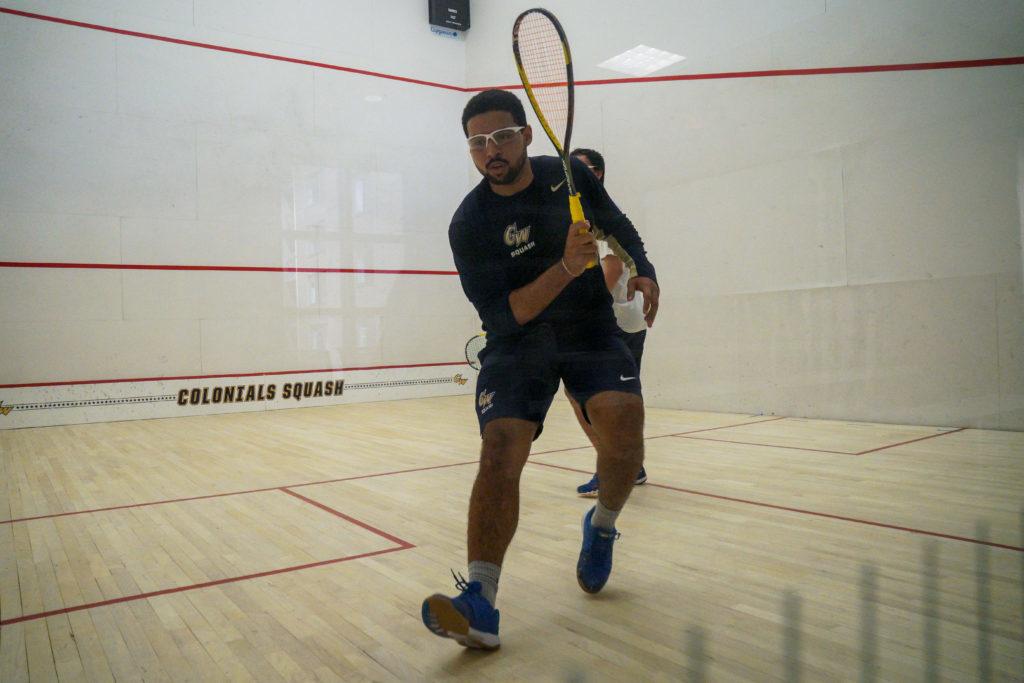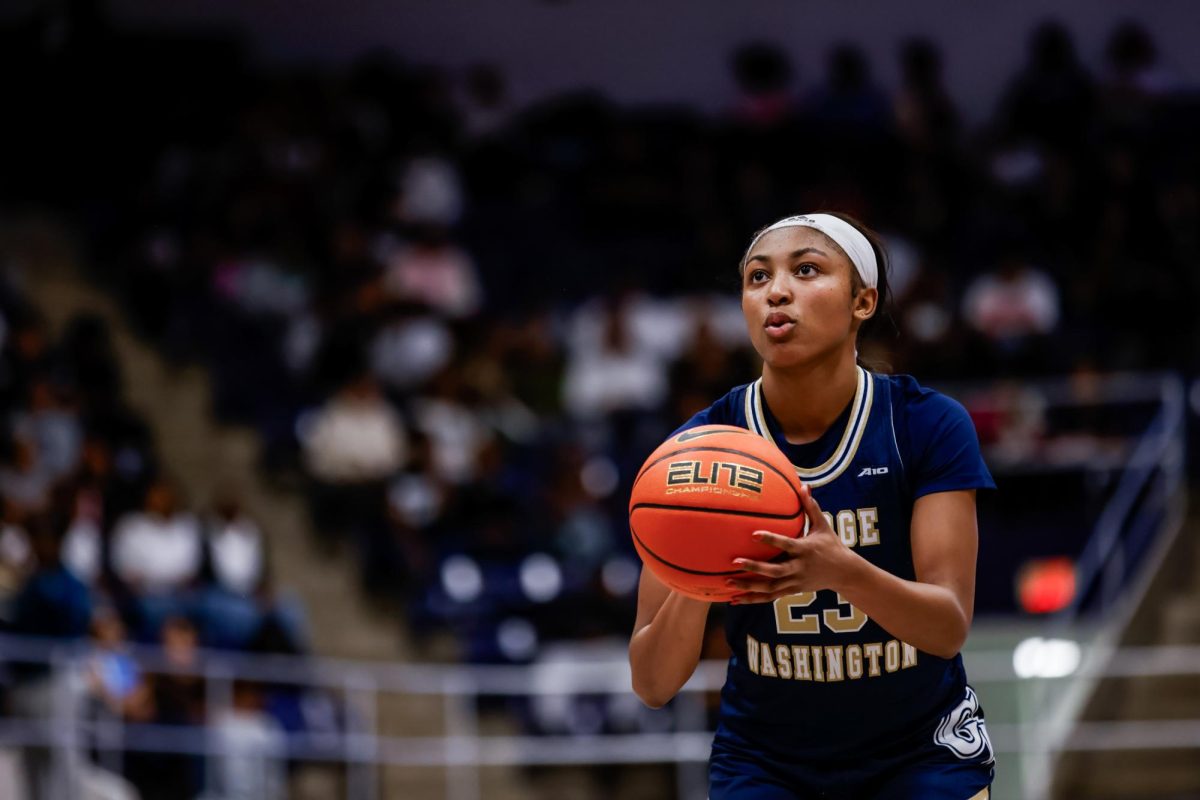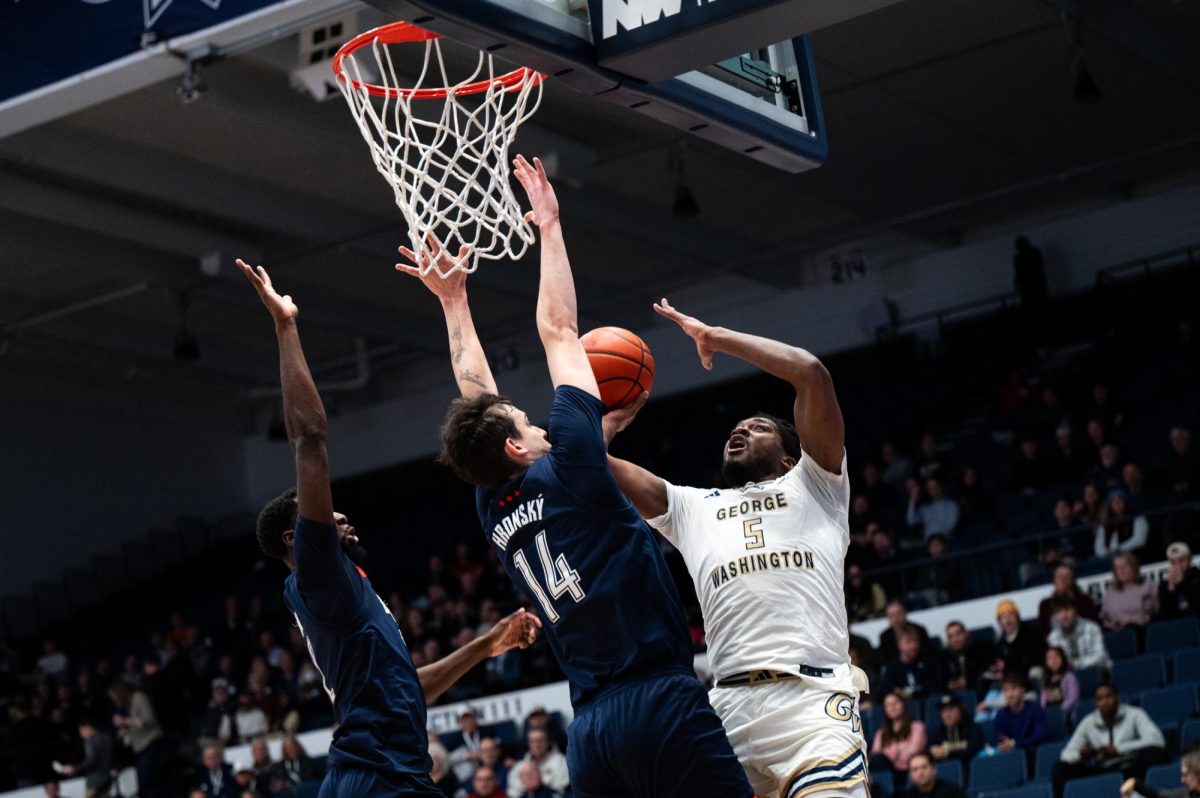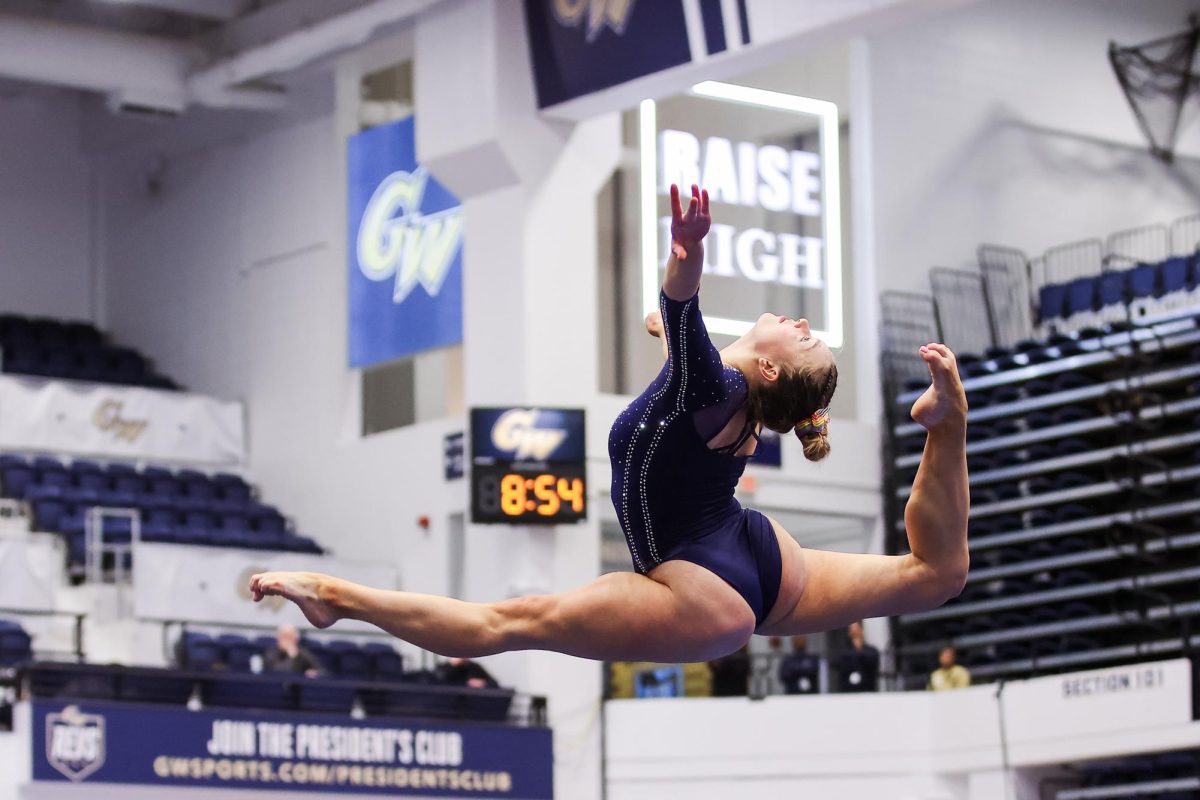When any student comes to GW as a freshman, it is expected that there will be a transitional period with adjusting to college life.
But for the majority of men’s squash’s lineup, there is an added layer of culture shock as nine members of the 13-man roster hail from countries other than the United States – the most in program history. Players said the variety of countries represented exposes them to different styles of play and means teammates grapple with the same challenges of being away from home.
Eight different countries – Egypt, Kuwait, Israel, United Arab Emirates, Colombia, the United Kingdom, Canada and New Zealand – are represented on the team.
“Coming here – each of us contributing and playing their own style – we learn from each other,” sophomore Mohammad Alterki said. “We welcome and enjoy new players so we can learn from their experiences and that has been a huge factor for success on our team.”
Alterki, who is from Kuwait, earned 15 wins, including one at the No. 1 spot for the team, as a rookie last season and advanced to the College Squash Association Individual National Championships Molloy North division quarterfinals in March.
The number of international student athletes on the men’s squash roster had been consistently increasing by one since the 2013-14 season, when just two men’s squash players were from outside the United States. The number of rostered international players for the squash team jumped from four to seven after the 2015-16 season, which assistant coach Anderson Good said signals the program’s success in recent years.
Last season, the Colonials broke into the top-10 nationally ranked teams for the first time in program history, clocking in at No. 9 after beating Yale in the CSA Hoehn Cup (B-Division). Five seasons before, the team was in the No. 20 spot and had never ranked higher than No. 17.
“As your team gradually gets better, you typically get more international players because they’re generally the better players,” Good said. “Those two kind of go hand in hand.”
Coming from all parts of the globe, players bring different styles of squash play to Foggy Bottom.
“Being international, that gives us a lot of different variety so you get a different combination with each player,” senior Moudy Abdel-Maksoud said. “We’re not identical in one way or another so it’s interesting, you learn something from everyone on the team.”
Squash in the United States is usually played at a slower pace and relies on the physicality and endurance of players to wear down opponents, Abdel-Maksoud said, but in his native Egypt, squash tends to be quicker with more attacking and tactical risks.
As a junior last season, Abdel-Maksoud earned CSA Second Team All-American honors and won nine matches for GW at the team’s No. 1 spot.
Abdel-Maksoud said the common struggles that come with being in a new country and far from home have helped the team grow closer off the court.
“It’s actually very interesting seeing how similar cultures are once they are out of their own comfort zone,” Abdel-Maksoud said. “Who would have known that the Egyptian culture could be somewhat similar to the Colombian culture.”
On top of adjusting to a new lifestyle and culture, incoming international students also have to manage the shift from playing in individual tournaments to playing squash in a team setting in college.
“It’s very rare – with international students, especially – that they’ve competed in a setting like this,” Good said. “Most of the time, it’s been more individual tournaments.”
Good said he focuses on making sure players feel welcome to help foster a team mentality, especially with student athletes who did not grow up in the United States.
“Making them feel like they have a home here is the most important thing,” Good said. “Then once we establish that, it’s just playing squash.”
Good said he uses an “individualized coaching” method with his team by making sure each player is getting specific guidance that best suits their style of play.
The mix of squash styles is an advantage for the team competition-wise but also helps the squad improve at an individual level, Good said.
“One thing that I try and tell my players is that we have so much talent in one place,” Good said. “Steal little things from everybody’s games because everybody is better at one aspect or not as great at another aspect. It’s an incredible wealth of information.”
Good said he understands it’s an “incredible challenge” for his international players to be living and competing in a different country, but it is the sport they all love that helps bring them together.
“I think that’s why we’ve been able to be so successful with it,” Good said. “We have this common language of squash and that, at the end of the day, is why everybody is here.”





